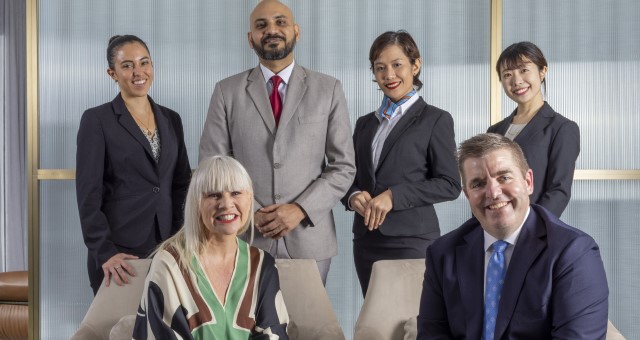Over the last two years, the world has changed. And so, it’s time for a fresh approach to the way we teach the next generation of hoteliers.
With international borders now reopened, we’re thrilled to see an influx of activity and the return of tourism in Australia. Whilst this highly-anticipated recovery is warmly welcomed, it also brings both challenge and opportunity as we face a drastic labour and skills shortage.
Industry growth is now outpacing the supply of skilled professionals. According to recent data, the number of hospitality job ads posted in Australia has just reached a two-year-high, jumping 20% in February alone. In contrast, the number of applicants for hospitality jobs has hit a two-year low in 2022.
“The biggest challenge for industry right now is retaining talented young people. We need to think long term about developing the skills of future managers,” said Jerome Casteigt, Chief Commercial Officer and General Manager of Business and Hospitality, Torrens University Australia.
More than ever, hospitality businesses need innovative solutions for attracting and training bright young talent at speed. This is why Blue Mountains International Hotel Management School (BMIHMS) at Torrens University Australia has led the charge in this new frontier of learning – Virtual Reality (VR) and Extended Reality (XR).
“Big problems need radical solutions, and that involves looking at all the learning opportunities that new technologies present. So far, we’re seeing some exciting results from our ground-breaking new VR and XR simulated hotel learning platform,” said Associate Professor Simon Pawson, Associate Dean and Academic Director, Torrens University Australia.

VR and XR: a new frontier in soft skills training
XR can and will change the landscape of hotel management education. The hotel industry must lean into the training opportunities this innovation presents for both current and aspiring talent.
“At Torrens University Australia we have a commitment to deliver immersive, authentic, industry-based learning, and we are also passionately committed to exceeding the possibilities of classroom learning through digital innovation,” said Eoghan Hogan, Director of Product Innovation, Torrens University Australia.
With over 30 years of rich legacy in producing world-class hotel leaders and a strong focus on being the Industry’s University, BMIHMS at Torrens University is perfectly positioned to introduce this new player.
“By combining research and technology we are able to create an informed learning design strategy which transforms learning experiences while aligning to the future of digitally transformed higher education,” said Pawson.
Here’s how it works
This technology extends learning beyond a face-to-face environment and into the digital space of XR. Consisting of a VR experience and a desktop 3D scenario version, this brings traditionally in-person learning into a truly borderless realm. Whilst it won’t replace the tactical nature of face-to-face learning, this exciting tool has the potential to allow for on-demand learning like never before.
The VR experience allows learners to use goggles to navigate through life-like scenarios, whereas the XR hotel offers a 3D immersive experience from any laptop.
Learners complete different tasks as they move around the virtual hotel space; inspecting rooms, serving digital guests and making decisions across all areas of hotel operations. They can make mistakes, test their knowledge, practise different management approaches, and get real-time feedback as they work through scenarios tailored to the development of their soft skills, confidence and emotional intelligence.
VR and soft skills training in the hospitality industry
As more research emerges demonstrating how VR can be utilised as a highly effective tool for soft skills and emotional intelligence training, companies around the world are increasingly adopting this technology.
In 2020, Hilton developed its own VR empathy training program for corporate staff to better understand the tasks of hotel employees. Best Western has also implemented VR customer service training for new front desk employees, and reported a significant decrease in customer complaints as a result.
There are some clear benefits of this technology that have led to operators adopting VR soft skills training. VR training is relatively inexpensive, it’s scalable, it’s accessible from anywhere in the world, and it offers real life authentic learning experiences. According to new research it’s even more impactful than most forms of current workplace training.
“The hotel industry is currently facing an unprecedented shortage of skilled workers worldwide. As skills shortages continue to emerge in the post-pandemic digital economy, VR training is expected to take an increasing role in onboarding new talent and providing the skilled professionals that businesses demand,” said Casteigt.
VR can help to fill the gap in soft skills and emotional intelligence training today. However, the hospitality industry needs to invest in training and innovative solutions if we’re going to educate the industry leaders we’ll need tomorrow. The ground-breaking VR- and XR-simulated hotel from BMIHMS is one more step towards an exciting future.

